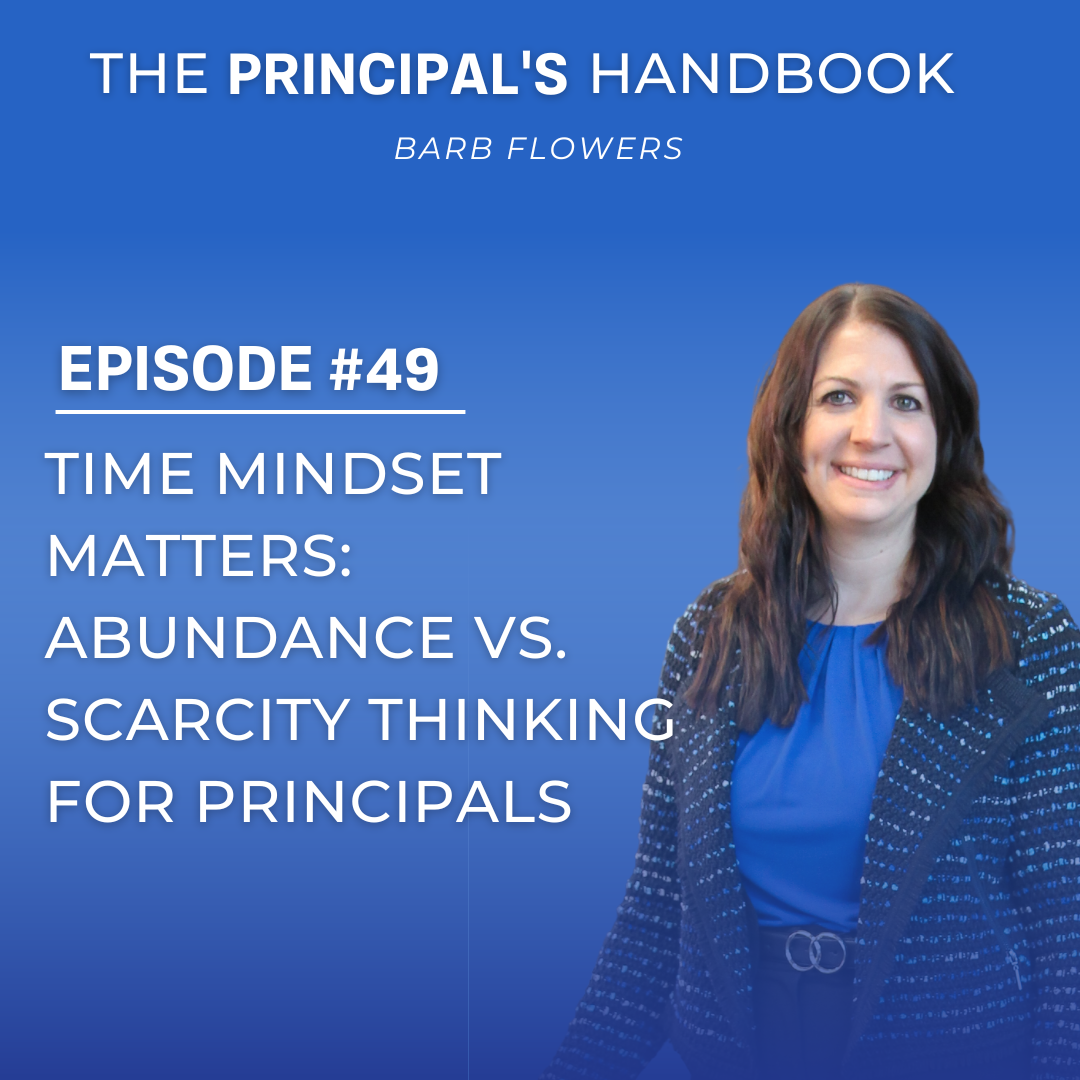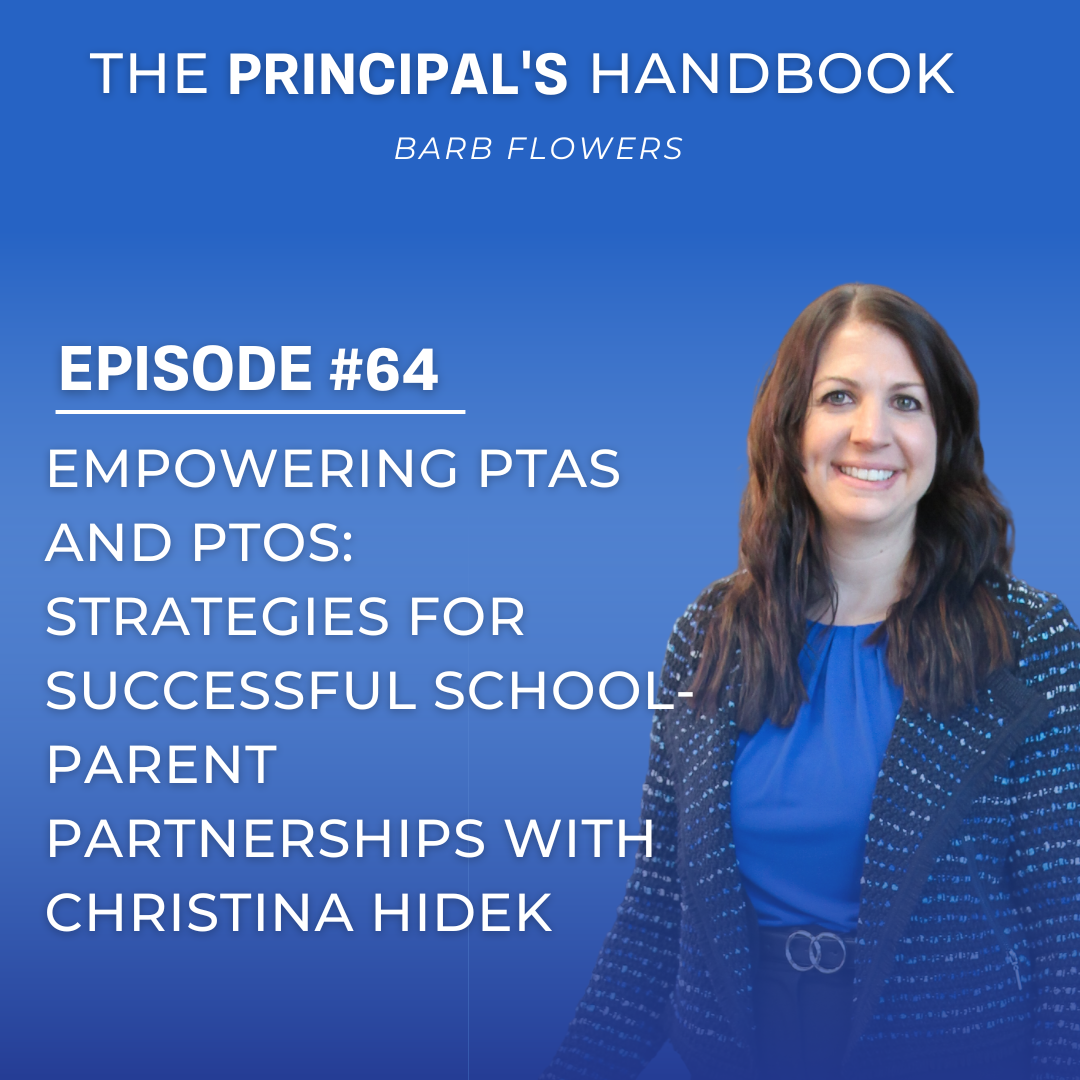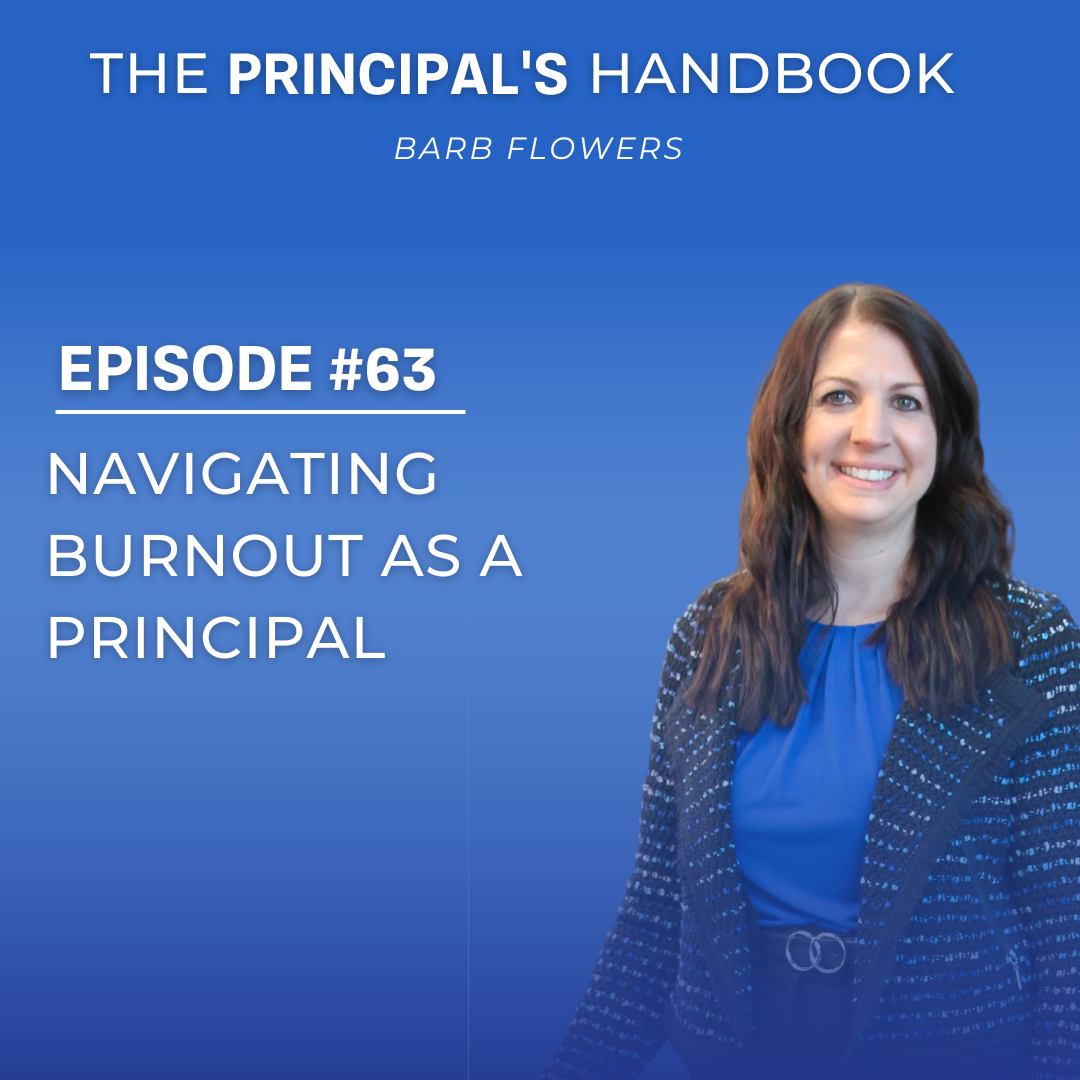[00:00:00]
In today’s episode, we’re diving into how we think about time—whether from an abundant or scarcity mindset. Stay tuned.
Welcome to The Principal’s Handbook, your go-to resource for principals looking to revamp their leadership approach and prioritize self-care. I’m Barb Flowers, a certified life coach with eight years of experience as an elementary principal. Tune in each week as we explore strategies for boosting mental resilience, managing time effectively, and nurturing overall wellness. From tackling daily challenges to maintaining a healthy work-life balance, I’m here to help you navigate the complexities of school leadership. Join me in fostering your sense of purpose as a principal and reigniting your passion for the job.
Welcome back to the podcast.
Today, I want to talk about our mindset around time. The number one thing I hear from people, whether it’s clients or friends, is how busy they are. When I catch up with someone and ask how they’re doing, the typical response is, “I’m so busy! There’s so much going on.”
And while that might be true, our culture places a lot of value on being busy. In the U.S., being busy has become a badge of honor. If you’re busy, you’re important. We pack our schedules, put our kids in countless activities, and I’ll admit, I’ve been guilty of over-scheduling myself. I’d have multiple events each evening, running from one to the next with no downtime.
It felt productive, but when we constantly fill our time, we start to think that being busy is the goal. But I’ve realized that we need to reframe our thinking around time.
Time is all about perception.
We all have the same 24 hours in a day, but how we experience that time varies. Take driving: if you’re in the car for 10 hours, it feels like forever. But if you binge-watch a show for 10 hours, the time flies by. The difference? How enjoyable or painful the activity is.
Time isn’t just a measurement; it’s about how we perceive it. We need to bring awareness to our thoughts about time to shift our mindset.
Let’s talk about distractions.
The average American spends 4.5 hours a day on their phone—one-sixth of our day. We get sucked into things that are easy, like scrolling through social media or watching TV, without being engaged in what truly matters. This becomes a big time drain, leaving us distracted and overwhelmed.
Now, let’s address the two mindsets around time:
-
Scarcity Mindset: This mindset comes from a place of lack or not having enough. When we approach time this way, we feel overwhelmed, stressed, and like we never have enough time.
-
Abundance Mindset: This mindset comes from a place of enough. It’s the belief that we have enough time to do what’s important.
It’s easy to get caught in a scarcity mindset. Our brains are wired for survival, and we’re designed to focus on scarcity to ensure we get what we need to survive. This instinct can cause stress, especially when it comes to time. But we can shift that mindset.
Signs of a Scarcity Mindset Around Time
-
Stress and Anxiety: A never-ending to-do list can drive stress. I’ve been there. As a teacher, I could spend hours in the classroom and still never feel done. It’s the same as a principal. You finish one task, and then another pops up. The key is learning to prioritize and let go of the idea that everything must be done at once.
-
Impatience: We rush through tasks thinking everything needs to be done now. But rushing through things prevents us from enjoying the process.
-
Urgency: We treat everything like an emergency. We think everything is urgent, but not everything needs to be done right now. As leaders, we often think everything must happen immediately, and that’s a big stressor.
-
Limited Thinking: With a scarcity mindset, we focus on what we can’t achieve because of time constraints. We put self-care on the backburner, forget to exercise, and feel constantly reactive to everything that happens in the day.
If you’re living in a scarcity mindset, know that you’re not alone. Our brains are wired for this. But with awareness, you can shift your mindset.
Abundant Mindset Around Time
An abundant mindset allows you to approach time with a calm, composed attitude. You know that not everything is urgent. Confident leaders don’t stress about time; they know that things will get done. When you approach time with this mindset, it changes your presence and how others perceive you. You’ll feel more relaxed, less stressed, and more productive.
Enjoying the Process
To enjoy the process, be present in the moment. It’s all about intention. For me, that means creating boundaries—like putting limits on my phone usage and scheduling time for self-care. I’ve also built a routine for working out, where I’ve set boundaries around my time so I can fully enjoy the activity instead of feeling rushed or distracted.
Prioritization
When you prioritize your tasks, not everything feels urgent. You start your day by setting clear priorities. I teach this in my coaching framework. By focusing on your top priorities, you can feel more at peace and accomplished. I’ve included a link to my Ultimate Morning Routine Checklist in the show notes, which also comes with a 7-day mini-course on prioritization.
Changing Your Thinking
An abundant mindset means seeing opportunities, not limitations. If you have a goal—whether it’s losing weight, exercising more, or achieving a work goal—know that it’s possible. If others can do it, so can you. We all have the same 24 hours in a day, but it’s up to us how we use it.
Time Management Coaching Program
If you want help thinking about time from an abundant mindset, join my new 8-week coaching program: Maximize Your Time. This program combines coaching and courses to help you set clear priorities, implement routines, and evaluate your day. You’ll learn how to manage your time more effectively and achieve more in less time. Podcast listeners get $200 off—click the link in the show notes to join.
Thank You for Joining Me Today
I hope this episode helped you shift your thinking about time. If you’re interested in learning more, follow me on Instagram @BarbFlowersCoaching or visit barbflowerscoaching.com. If you liked today’s episode, share it with a friend.
Remember, you have the power to shape your life according to the mindset you choose. Have a great week, and I’ll see you back here next time.
Music






